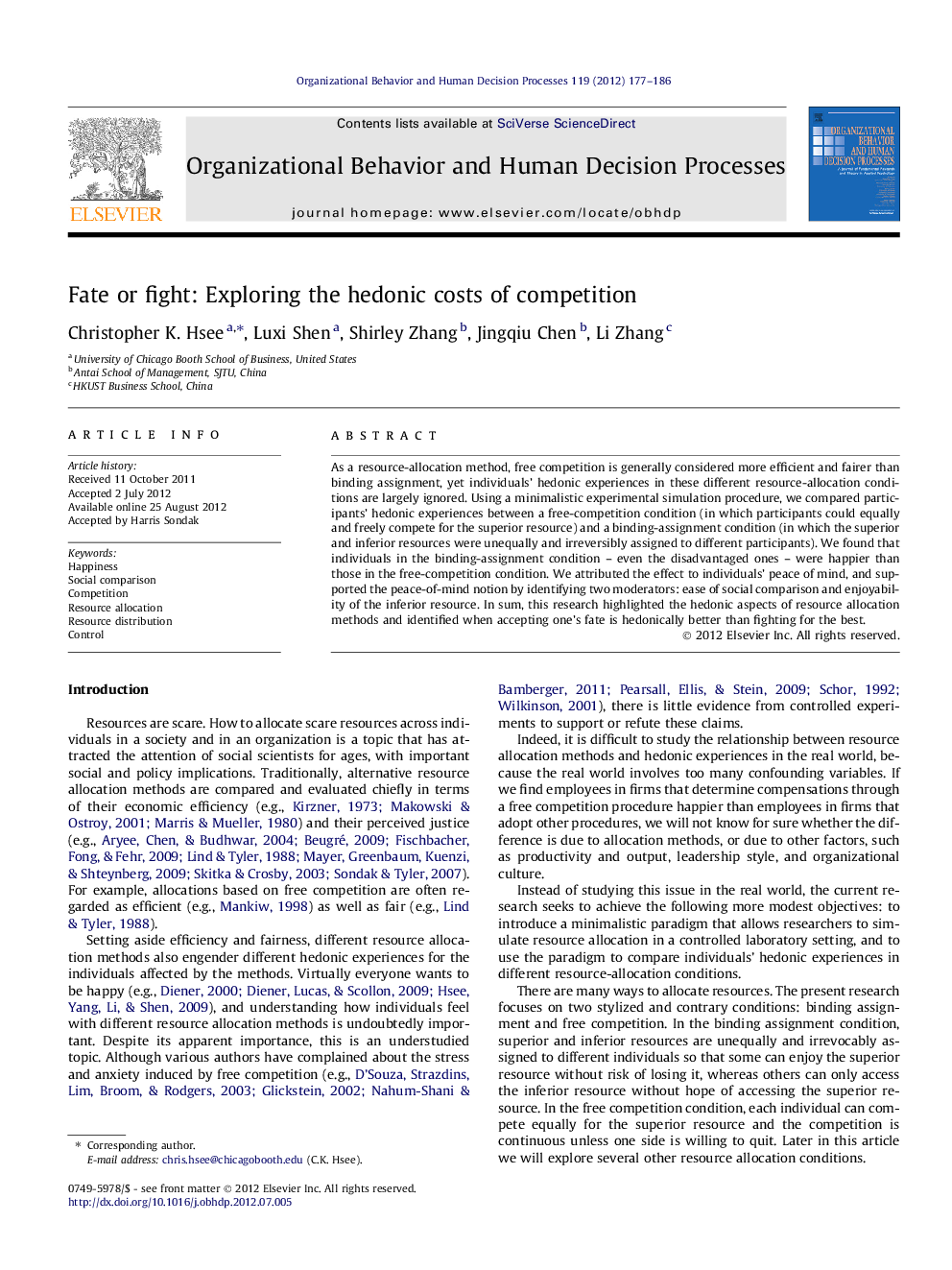| Article ID | Journal | Published Year | Pages | File Type |
|---|---|---|---|---|
| 888683 | Organizational Behavior and Human Decision Processes | 2012 | 10 Pages |
As a resource-allocation method, free competition is generally considered more efficient and fairer than binding assignment, yet individuals’ hedonic experiences in these different resource-allocation conditions are largely ignored. Using a minimalistic experimental simulation procedure, we compared participants’ hedonic experiences between a free-competition condition (in which participants could equally and freely compete for the superior resource) and a binding-assignment condition (in which the superior and inferior resources were unequally and irreversibly assigned to different participants). We found that individuals in the binding-assignment condition – even the disadvantaged ones – were happier than those in the free-competition condition. We attributed the effect to individuals’ peace of mind, and supported the peace-of-mind notion by identifying two moderators: ease of social comparison and enjoyability of the inferior resource. In sum, this research highlighted the hedonic aspects of resource allocation methods and identified when accepting one’s fate is hedonically better than fighting for the best.
► We compare people’s hedonic feelings in different resource allocation conditions. ► We introduce a minimalistic experimental paradigm to study the issue. ► Binding assignment (fate) makes people happier than free competition(fight). ► Difficulty of social comparison and quality of inferior resources are key moderators. ► We discuss how to improve resource-allocation methods to increase employee happiness.
